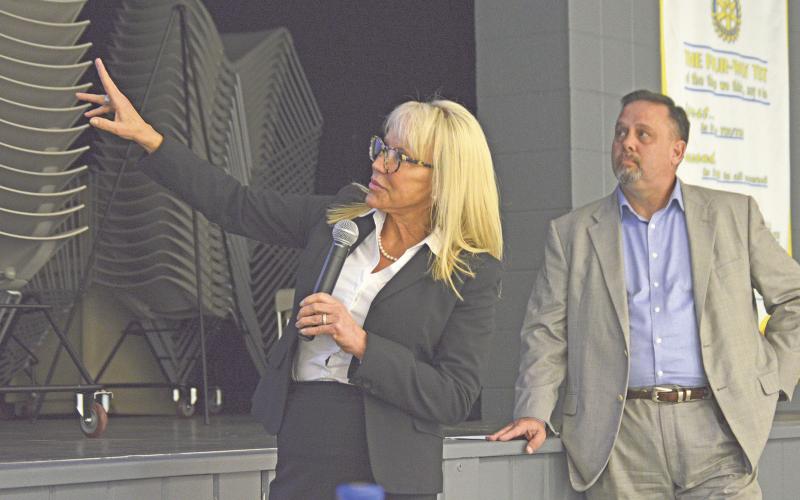90th District Attorney speaks official duties, work during COVID
The 90th Judicial District Attorney Dee Peavy and Assistant District Attorney Phillip Gregory spoke regarding their positions and what their office does year-round and through the COVID-19 pandemic last Tuesday. The office encompasses Stephens and Young Counties.
The DA’s office processes felony criminal prosecutions instead of misdemeanor cases which are handled in Stephens County by Stephens County Judge Michael Roach.
“Those cases only carry time in the county jail, whereas felony offenses, they are more serious and they carry time in the state penitentiary,” Peavy said.
The DA said the penitentiary system changed in 1993 when they made a new classification of felony because criminal drug offenses or felony drug offenses were being so aggressively prosecuted that they wanted a whole different system for these lower-grade felonies.
“They didn’t want to have your small-time criminals put in the same facility as these hard-core, hard-timers. They thought these people were coming out knowing how to be better criminals,” Peavy said. “So they came up with what we call a whole new classification of felony. It used to just be first, second and third. Well now we have what’s called a state jail felony.”
Peavy added that unlike with the institution division, state jail felonies can have inmates serve up to two years in the state jail facility and they do not parole out early. State jail felonies can serve from 180 days to two years in a state jail facility, as well as an up to $10,000 fine. The district attorney said when they implemented this new type of felony they created new facilities, such as the Walker-Sayle Unit, in Breckenridge, and the John R. Lindsey State Jail, in Jacksboro.
“(The Walker-Sayle Unit) is a substance abuse treatment program,” Peavy said. “That is to address drug issues. They go on (and) usually they are on probation. As a condition of their probation they have to fulfill, they go to it. It’s a prison. It’s lockup. They go in there and they receive all types of drug counseling and then they have to go to a half-way house and they deal with the rest of their probation.”
For the full story, click here to subscribe or log in to read the Wednesday, Aug. 4 edition of the Breckenridge American.
- Log in to post comments


